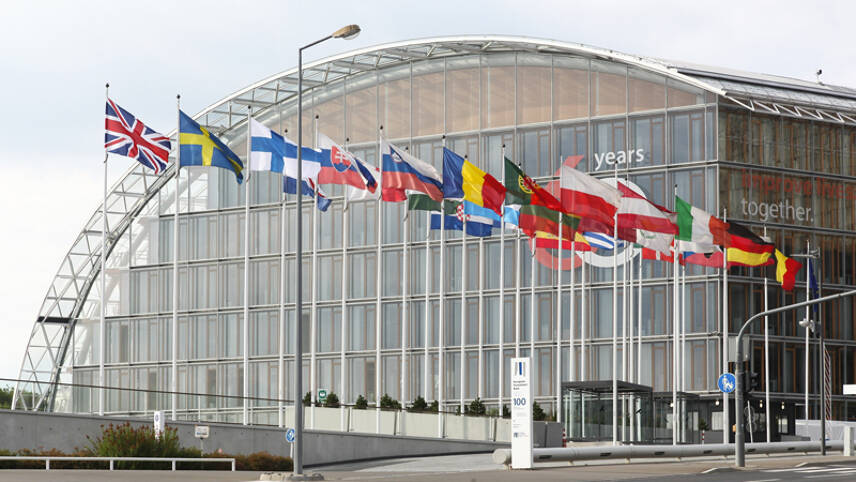Register for free and continue reading
Join our growing army of changemakers and get unlimited access to our premium content

Pictured: The EIB building. Stock image.
The EU first tabled its landmark ‘RePowerEU’ plan back in May. The headline ambition of the €300bn plan is to make the bloc independent of Russian fossil fuel imports by 2027. Doing this will require short-term investments in new gas storage, as well as increasing longer-term ambitions on energy efficiency and clean energy.
While some EU member states are reportedly looking to water down increased 2030 targets for clean energy at present, the plan will still entail a massive scaling up of public and private funding for energy efficiency, renewable energy, energy storage and grid upgrades.
To that end, the EIB’s board of directors has approved a new package of €30bn of loans and equity financing to be provided over a five-year period. The finance is classed as “supplementary” – it is all additional to the support the Bank is already providing to Europe’s energy sector. Countries will be able to access funding for electric vehicle (EV) charging infrastructure and green hydrogen, also.
The EIB is forecasting that the additional financing – which it has described as “unprecedented” – will mobilise up to €115bn from other sources, including private finance, this decade.
In addition to raising energy lending volumes, the EIB is offering higher upfront disbursements and longer loan tenors. It is also raising its co-financing ceiling from 50% to 75% for projects compatible with REPowerEU objectives.
“This horrible war and Russia’s blackmail over gas supplies affirmed that our dependency on fossil fuels is a critical security vulnerability,” said EIB president Werner Hoyer. “It’s about time we finally ended this dependency. The EIB is determined to mobilise the full scale of its financial resources in support of the joint effort, and work with the private sector to maximise the impact of our investment.”
Each year over the past decade, the EIB has provided an average of €10bn to the energy sector. The organisation pledged in 2019 to phase out fossil fuel investment by 2022 as part of an attempt to transform itself into Europe’s climate bank. It has faced accusations from green NGOs of failing to properly wind down investment during the three-year transition period but maintains that it is on track to end fossil financing this year.
Spotlight on methane
In related news, a new report was launched at the European Parliament today (27 October), warning that the bloc is not likely to meet its Global Methane Pledge commitments. The pledge requires nations to reduce methane, a potent greenhouse gas, by 30% within a decade. It has a 2030 deadline. The two biggest sources of methane globally are the oil and gas sector and agriculture sector.
The new report, from the Changing Markets Foundation, argues that the EU is failing to use policy levers to directly tackle methane emissions from agriculture, which is the bloc’s biggest source of methane. It states that the common agricultural policy (CAP) scheme has no targets for reducing methane in line with the pledge and has been subsidising farmers for continuing to use high-emission practices.
The European Commission has itself admitted it will fail to meet the 2030 target, the report notes. In an internal document sent to EU states sent earlier this year, a 23% reduction in methane is projected.
Managing animal feed, scaling up feed additives and reducing beef production and consumption are recommended in the report as means of slashing methane levels from European agriculture. The report states that the EU could cut its methane by 36% solely by focusing on the agriculture sector, rising to 49-68% if actions are equally ambitious in the energy and waste management sectors.
“It will be impossible for the EU to reduce methane emissions in line with the Pledge without embarking on the transformation of its food system; our leaders must start listening to scientists instead of lobbyists,” said the Changing Markets Foundation’s campaigns director Nusa Urbancic.


Please login or Register to leave a comment.